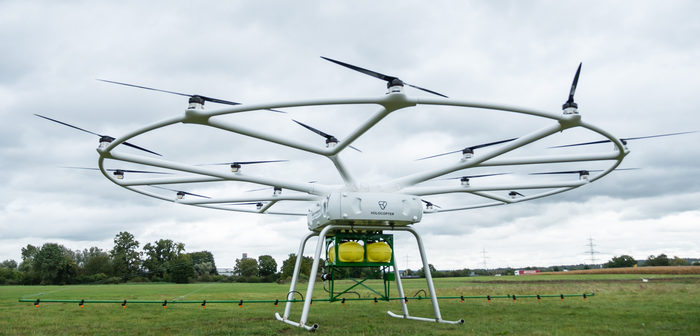CDotBio, a spin-off company from the University of Bristol, is offering a glimpse of what crop protection might look like in the future.
Pioneering carbon nanodot technology, originally developed for healthcare, could transform global agriculture through the development of next-generation, RNA-based biopesticides. CDotBio expects the technology to reduce reliance on traditional chemical pesticides and significantly lower the environmental impact of crop protection.
Carbon nanodots are ultra-small, biodegradable particles that enable precise, species-specific targeting in plants. Traditionally used in medical and biotech applications, these nanodots are now being repurposed to overcome key challenges in RNA-based biopesticides—such as poor stability, delivery, and cellular uptake.
“Carbon nanodots enhance the stability and delivery of RNA, allowing biopesticides to reach pests or weeds more effectively,” saysTeo Garcia-Millan, co-founder and CEO of CDotBio. “They prevent RNA from degrading too quickly, enabling more precise and reliable pest control.”
Unlike conventional broad-spectrum chemical pesticides, which often persist in the environment and harm non-target organisms, RNA-based biopesticides offer targeted, biodegradable control—and can even contribute to improved soil health. CDotBio’s nanodots are manufactured from renewable organic materials and are cost-effective to scale, making the solution both sustainable and commercially viable.
“Eighty percent of global food production depends on plants, yet we’re losing up to 40 percent of crop yields to pests and disease,” adds Teo. “The agricultural sector urgently needs better tools. Our technology unlocks the full potential of RNA-based crop protection.”
The company is looking for strategic partnerships with agribusinesses, RNA manufacturers, and crop protection firms. The initial target is blackgrass, an herbicide-resistant weed that causes over £400 million in losses annually to UK wheat farmers. CDotBio is also developing nanodot-enabled RNA solutions for major crop threats such as wheat rust, downy mildew, aphids, and other insect pests.
Preliminary modelling indicates that nanodot-enabled RNA sprays could reduce synthetic pesticide use by up to 70% in targeted applications—delivering significant environmental and economic benefits to farmers.
CDotBio has been awarded the £25,000 Armourers & Brasiers Venture Prize to help fund validation studies and field trials ahead of regulatory submission. Field trials are anticipated to begin in 2026, with market launch targeted for 2028, pending regulatory approvals.
“CDotBio is an excellent example of how UK scientific innovation can drive environmentally friendly solutions in agriculture,” notes Julian Beare, Chairman of the Armourers & Brasiers Venture Prize judging panel. “Our mission is to foster scientific entrepreneurship and help promising ventures achieve real-world impact.”



